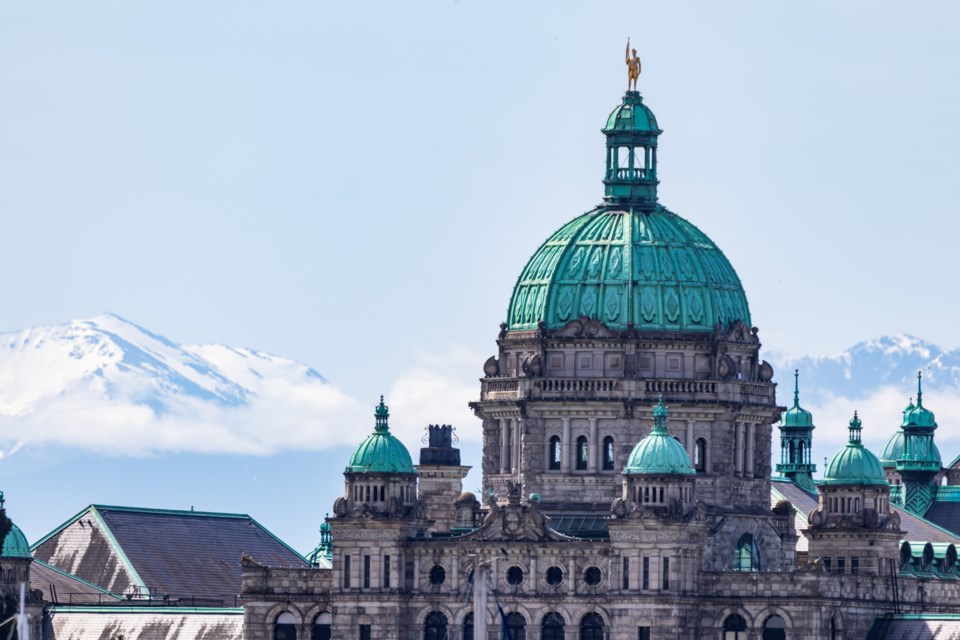BC puts a great deal of effort into ensuring provincial elections are conducted fairly, with strict oversights on spending limits, advertising windows, and independent scrutiny of each and every ballot cast in the race.
But when it comes to how political parties elect their leaders – the very people who often end up becoming premier of the province – there’s so little oversight as to be laughable.
Case in point, the recent kerfuffle within the BC Liberal race, where six out of seven leadership campaigns are alleging all manner of irregularities in upwards of 60 per cent of 43,000 new members signed up to vote in the race.
The concerns are serious, including addresses for members that don’t appear to exist, wonky email addresses or no email addresses at all, out-of-province phone numbers and multiple people registered to a single property who may or may not even live there, or be aware they’ve been signed up to join the party.
If these folks were voters in a general elections, it’s quite likely Elections BC would refuse to issue them a ballot.
But Elections BC has no oversight of how political parties select their leaders. They are, essentially, private clubs deciding on their own rules and processes to ensure they run a clean race. More often than not, if there are problems or even fraud, they get swept under the rug for the good of party unity.
The BC Liberals have a “leadership committee” who will conduct their own (largely secret) internal audit of the memberships and conclude (against mostly in secret) what should be done. There’s no appeals process for anyone who disagrees.
That’s been more or less widely accepted as the way BC politics has worked the past 100 years. Political parties raised their own money, signed up their own members, and were left to handle their own affairs internally as independent entities. Fairness was in the eye of people who paid to be members.
That changed in 2017 when Premier John Horgan brought in temporary public subsidies for political parties, funnelling millions of dollars in taxpayer funds directly to the parties in a per-vote system to wean them off corporate and union donations. All parties in the legislature voted to make this permanent last year.
With that great power to draw from the public purse, comes great responsibility to conduct a fair race. The time has come for Elections BC to be given independent oversight of the leadership races of political parties, and ensure they are conducted in a transparent and accountable way.
It’s not a partisan issue.
Every leadership race within the BC NDP and BC Liberals in the last 20 years has faced controversy – except Horgan’s 2014 election as BC NDP leader, because at the time nobody else wanted the job.
In the 2018 BC Liberal leadership race, candidate Todd Stone cancelled 1,349 membership after admitting his campaign had improper fake email addresses that could have theoretically given his team access to the personal identification numbers used to vote.
The incident caused a huge uproar over the fairness of the race and whether membership fraud was widespread in the dying days of the campaign.
In the 2011 BC Liberal leadership race, victor Christy Clark faced allegations her campaign had amassed stacks of PIN numbers from new members and her campaign staff were holding “pin parties” to use these PINs to vote en masse for Clark. After she won, the party basically dropped whatever investigation it had pledged to undertake.
Also that year, in the BC NDP leadership race, MLA Mable Elmore was caught on camera stapling $10 bills from a giant sack of cash to a big pile of membership forms to help leadership candidate Adrian Dix – an apparent violation of the rules because membership are only valid if people pay their own money to sign up.
Dix went on to win, but other leadership candidates Harry Lali and Mike Farnworth professed great concern that the rules weren’t followed, and Lali went on to publicly call for Elections BC to take over future party leadership races.
You can even go back to as far as the 2003 election of Carole James as BC NDP leader to pick up notes of controversy over how the vote was conducted, with a flurry of bitter disagreement over whether it should be a one member one vote system, or chosen by delegates in which organized labour groups had great influence to sway the outcome. They kept the delegate system, but not everyone was happy.
All of this could be prevented in the future by giving Elections BC the mandate (and the funding) to oversee party leadership races. It could set clear criteria on what constitutes valid memberships, put in place transparent timelines, audit the results and force transparency and disclosure from the candidates.
The days of political parties making their own rules of questionable fairness to select leaders who could go on to be premier were over the minute the parties voted last year to make public subsidies permanent. If they’re willing to take public money to fund their private clubs, political parties owe it to the public to show they are doing a fair job.
Rob Shaw has spent more than 13 years covering BC politics, now reporting for CHEK News and writing for The Orca. He is the co-author of the national best-selling book A Matter of Confidence, and a regular guest on CBC Radio.



